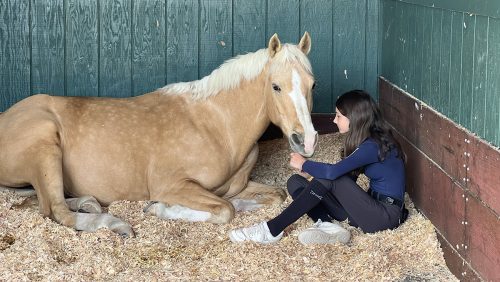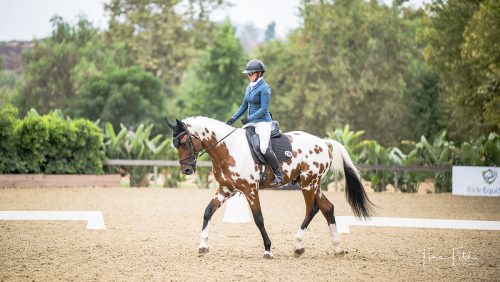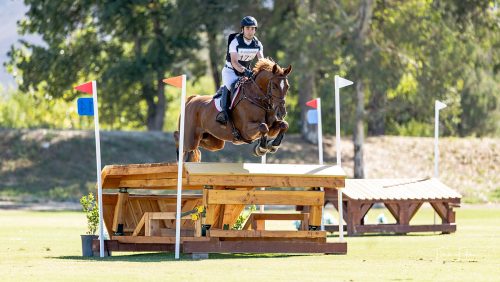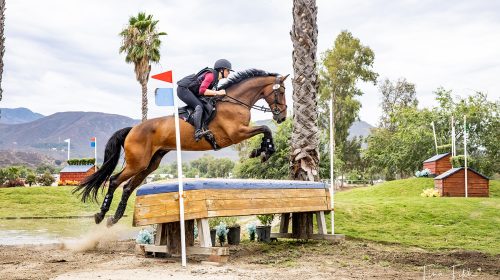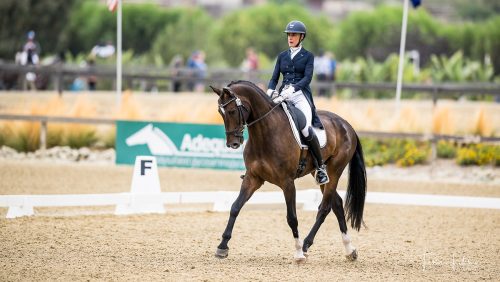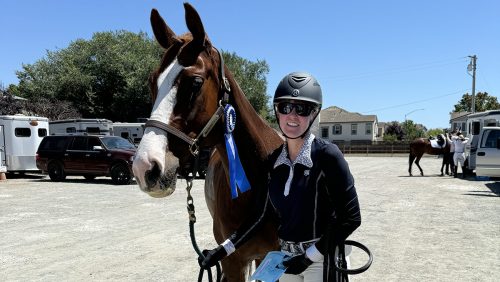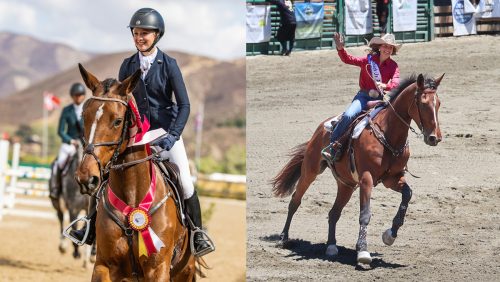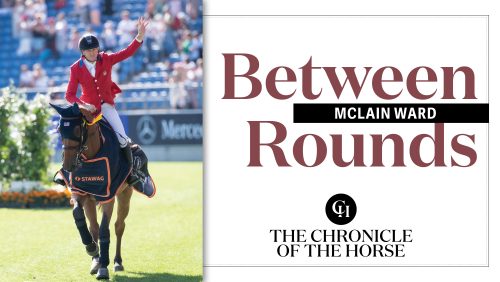Our columnist has repeatedly observed unsafe riding and coaching and a culture that pressures riders to move up the levels before they are ready.
Many people in our sport spend countless hours trying to find ways to make eventing a better—and most importantly, a safer—sport for horses and riders. The changes that have been and are continuing to be made over the past few years are remarkable.
Eventing has implemented new rules, some—such as the one fall and out rule—more controversial than others. Other rules pertain to jump construction and safety mechanisms and how penalties should or shouldn’t be scored. Major studies are ongoing to find out if there are safer construction methods we can use to improve things even more. All of this is being done so that maybe, just maybe, we can get to the place where a tragic accident is not only unusual but also unexpected. Truthfully, that’s it.
No one is honestly saying that we will get to the point where we will leave the start box on cross-country knowing that there is zero risk. We just want things to be safer.
So I go to events, and when I’m not competing myself or teaching and coaching my students, I watch. I look at fence construction. I pay attention to how courses are designed and fences are built. When I have time I try to help the event organizers in every way I can so that the weekend has a better chance of running safely and smoothly. But mostly I just watch. I watch people ride. I watch people coach, and I watch how their horses respond.
I have come to one very sad conclusion: We, as a sport, are not good enough.
I am sad to have come to this conclusion, and I know it will not be a popular opinion amongst the eventing community, but we need to hear it. The caliber of riding I see at many events is beyond scary, and much of the coaching is no better. The reality is that many competitors at the events I attend are completely unaware of what their responsibilities as riders should be.
Eventing is not and should not be for everyone. Just because a competitor loves his horse and loves his sport, it does not give him the right to compete at whatever level he likes.
I constantly hear event riders pontificate about what great horsemen and women we are. No matter how attentive you are in regards to your horses’ health and soundness you cannot be a great horseman if you are riding at a level above your ability. There are very real consequences to both horse and rider if a rider’s skill set is not up to the challenge at hand.
The Right People
ADVERTISEMENT
It all starts with coaching. The quality of coaching at many events isn’t up to the standard it needs to be. I routinely watch coaches who are not only unqualified to be teaching but honestly have some very dangerous ideas about how to best advise their students at a competition.
We have an excellent coaching and teaching certification program within the U.S. Eventing Association. While the Instructor Certification Program doesn’t guarantee that someone is a great coach, it does guarantee that they have achieved a minimum standard of knowledge at their particular coaching level. As riders we need to check this list and make sure that people we turn to for help are getting all of the education available to them so that they can competently help us.
The ICP list of certified instructors is on the USEA website and is a great place to start. Are there great coaches who are not ICP certified? Absolutely, and if you know of one, then by all means please use him or her. However, if you as a competitor have questions as to who you should turn to there are resources available to you.
If you’ve been trying to improve your ability as a rider and find that time after time you just can’t get it done, then take a second look at the people you turn to for help. This doesn’t mean that they aren’t teaching you the right things. In fact, they may very well be teaching you the skills that are required to improve. Instead, ask yourself if that coach is being honest with you. When you have conversations about your riding and your horse, is your coach willing to tell it like it is? Will he or she have a truly candid conversation with you and properly evaluate if you are ready to take the next step?
I have much more respect for a coach who is willing to tell a student, “No, you are in fact not ready to move up the levels,” than the one who is just trying to keep students happy. That is a tough conversation to have. Are you honest with your client and risk losing their business, or do you sugar coat your answers and let the client go on believing he’s making progress that he’s not?
Trust me, it is far easier to sleep at night knowing that you have done everything in your ability to keep your riders safe than it is questioning if they should be going at a particular level or riding a particular horse. The “move up” mentality in our sport is a very real and dangerous pressure that many riders feel. We need to realize that not every rider is destined to one day compete at Rolex. Not every competitor is going to make it to a CCI, and you know what? That’s OK.
I love to ski. I have since I was a little kid. But I’ll be the first to tell you, I am a full-fledged “blue” square skier (green circle=easy, blue square=moderate, black diamond=expert). Always have been. And I am completely fine with that. I know that trying to tackle the black diamond puts me at risk of getting hurt, and also I just look like someone who is way over my head and should know better.
Even though I was blessed with the ability as a rider to compete at the advanced level, when it comes to another sport I love—skiing—I’m happy right where I am. If you enjoy competing at the novice level and you win and have fun, don’t give in to the pressure to go training level until you feel ready. There is no shame in being the national novice champion year after year.
If and when you are ready to move up the levels make sure you have a very frank conversation with someone you respect who will be truly honest with you about your abilities. Then be honest with yourself. Is this something you want to do, or is it something you feel pressured to do? Be certain that you don’t give in to your peers who give you a hard time because you stay where you are comfortable.
Very often I see people pressuring their friends to move up simply because they are tired of losing to them. Don’t believe me? Just pay attention. It’s not overt; it’s little things. Comments like, “Oh I see you won again, good for you. Must be nice to have a push-button horse,” or, “Wow you had a great weekend. I bet it’s almost boring for you.”
ADVERTISEMENT
It doesn’t really matter what they say to you. The “move up” mentality is pervasive in our sport, and it’s causing some very scary and dangerous riding each and every weekend.
We, as a sport, just need to improve.
Get Real With Yourself
We do have—at all levels—some of the best horsemen and women of any discipline. But in our own way we use that as an excuse to not improve our riding abilities. It doesn’t matter how well you take care of your horse when it’s in the barn if you don’t have the ability to safely pilot him or her around a jumping course. Get real with yourself: If you don’t have the ability to see a distance to a pole on the ground, then why on earth do you feel it is safe to try to canter around a course of jumps? Get back to work and learn the skills you need to be a competent rider.
Many of us are hypercritical of our hunter/jumper counterparts. We see them buying expensive horses and only getting on what we consider “made” animals. We watch their trainers help them produce those horses to the perfect round. You know what? They have that part right.
A true beginner rider has no business producing a horse with zero experience or ability. If that is the reality of what you have to do to be able to event, then at the very least, get quality, consistent help from a good instructor. Perfect your ability to produce the perfect canter. Then start working on being able to canter to a pole and know each and every time that you will get it right. Only then should you start jumping. From there be diligent that before you move on to the next step or level that you have perfected the skills needed to be safe at the level you are currently competing.
Listen eventers, I know this is hard to hear, but we as a sport need to hear it. We have been making changes to how courses are designed and fences are built, but that by itself will never be enough.
We need to make huge changes in how we approach our desires to be competitors and how to deal with the pressures to move up the levels. We need to individually be responsible in balancing our personal goals with our own ability levels. Accidents happen. I have set my own goal to contribute towards making this sport as safe as possible, but the reality is that it will take each and every one of us to be responsible for ourselves to achieve that goal. I believe we can do it. I hope you do too.
Jonathan Holling has been a mainstay at the top level of eventing for close to 20 years, competing in North America and Europe. He won the 2012 Bromont CCI*** (Quebec) and was a member of that year’s Nations Cup team at Boekelo (the Netherlands). Jon has successfully ridden around many four-star events. In addition, he formerly coached the Area IV young rider team, which has won numerous medals, including two golds. He serves on the U.S. Equestrian Federation Competition Management Committee, Eventing Committee and High Performance Eligible Athletes Committee. He started contributing as a Between Rounds columnist in 2015.







